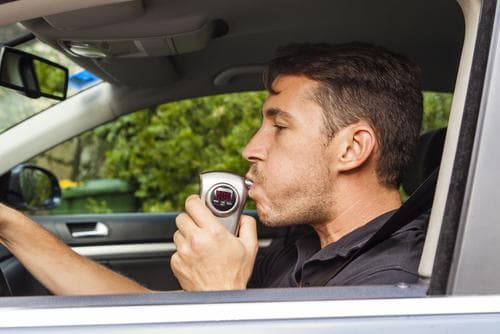Ignition Interlock Devices
As we reported this summer, Illinois introduced several new DUI laws in 2016 in an ongoing battle to reduce the number of drunk driving-related accidents. One change that went into effect this year lifted the prohibition on DUI offenders from driv...

As we reported this summer, Illinois introduced several new DUI laws in 2016 in an ongoing battle to reduce the number of drunk driving-related accidents. One change that went into effect this year lifted the prohibition on DUI offenders from driving at all during the first 30 days of a summary suspension with the use of an ignition interlock device. Offenders are now permitted to continue driving with restricted privileges provided that they install an ignition interlock device and submit to regular monitoring of the device to ensure their continued sobriety while driving.
Repeat offenders may also receive restricted privileges with interlock devices, and even four-time DUI offenders, previously banned from driving for life, may be eligible for restricted driving permits, again with an interlock device. Given that DUIs have risen over 20 percent in some areas over the last five years despite DUI law expansions, many are concerned that the devices are not as effective as intended.
What Is an Ignition Interlock Device?
A Breath Alcohol Ignition Interlock Device (BAIID) is a dashboard-mounted vehicle breathalyzer that requires the driver to blow into the device before operating the car. If alcohol is detected above a certain level, the vehicle is rendered inoperable, thus preventing a driver from driving while under the influence. A majority of states in the U.S., including Illinois, require first-time DUI offenders to install a BAIID in their vehicles. Illinois also mandates that BAIIDs include a camera unit that will capture an image of the driver as they perform the breath test before attempting to operate the vehicle.
In Illinois, DUI offenders may decline to have a BAIID installed, but they must then completely refrain from driving during the summary suspension period and may face increased penalties. Ignition interlock devices aim to allow DUI offenders to continue driving legally for work, family, and quality of life purposes, while still reducing the rate of alcohol-related accidents
How Effective Are Interlock Devices?
Given that the devices are fairly new, it is not surprising that studies have communicated mixed results thus far. The University of Pennsylvania School of Medicine reported that state laws requiring interlock devices saved an estimated 915 lives between 2004 and 2013, amounting to a 15 percent reduction in drunk-driving related deaths compared to states without mandatory interlock device laws.
One Florida study found that, in general, interlock devices were more effective in reducing drunk driving than other penalties such as license suspensions, however, it found that the effect seems to work only in the short term; once the devices were removed, DUI recidivism rates increased. Similarly, the CDC also reported that DUI recidivism rates were drastically reduced while the devices were installed, but that the effect disappeared after the devices were removed.
Yet another study conducted by the University of Kansas last year determined that most states viewed ignition interlock laws as typical regulatory policies and far too lenient as a form of criminal punishment rather than an effective public safety tool that actually prevents drunk driving accident deaths, but the study focused on laws that did not mandate the devices for first-time offenders.
Overall, it is not clear whether the devices will significantly reduce the rate of drunk driving and related collisions after their mandatory installation period ends, but the limited research available seems to indicate that those who use the devices fare better than those who do not. It remains to be seen what updates lawmakers will implement to ensure the effectiveness of BAIIDs beyond short-term effectiveness, but it seems likely that closer monitoring, requiring the devices for first-time offenders in more states, and extended usage periods to ensure long-term compliance may be next up for discussion.
Injured in a Drunk-Driving Collision?
If you or a loved one has been injured in an alcohol-related car accident in Lake County or surrounding areas, let the experienced Lake County personal injury attorneys at Salvi & Maher, LLP help. We have handled drunk driving auto accident cases for years, and we can help you through this difficult process.
Sources:
https://www.cyberdriveillinois.com/publications/pdf_publications/dsd_a292.pdf
http://www.oppaga.state.fl.us/MonitorDocs/Reports/pdf/1414rpt.pdf
https://www.sciencedaily.com/releases/2016/03/160317185010.htm